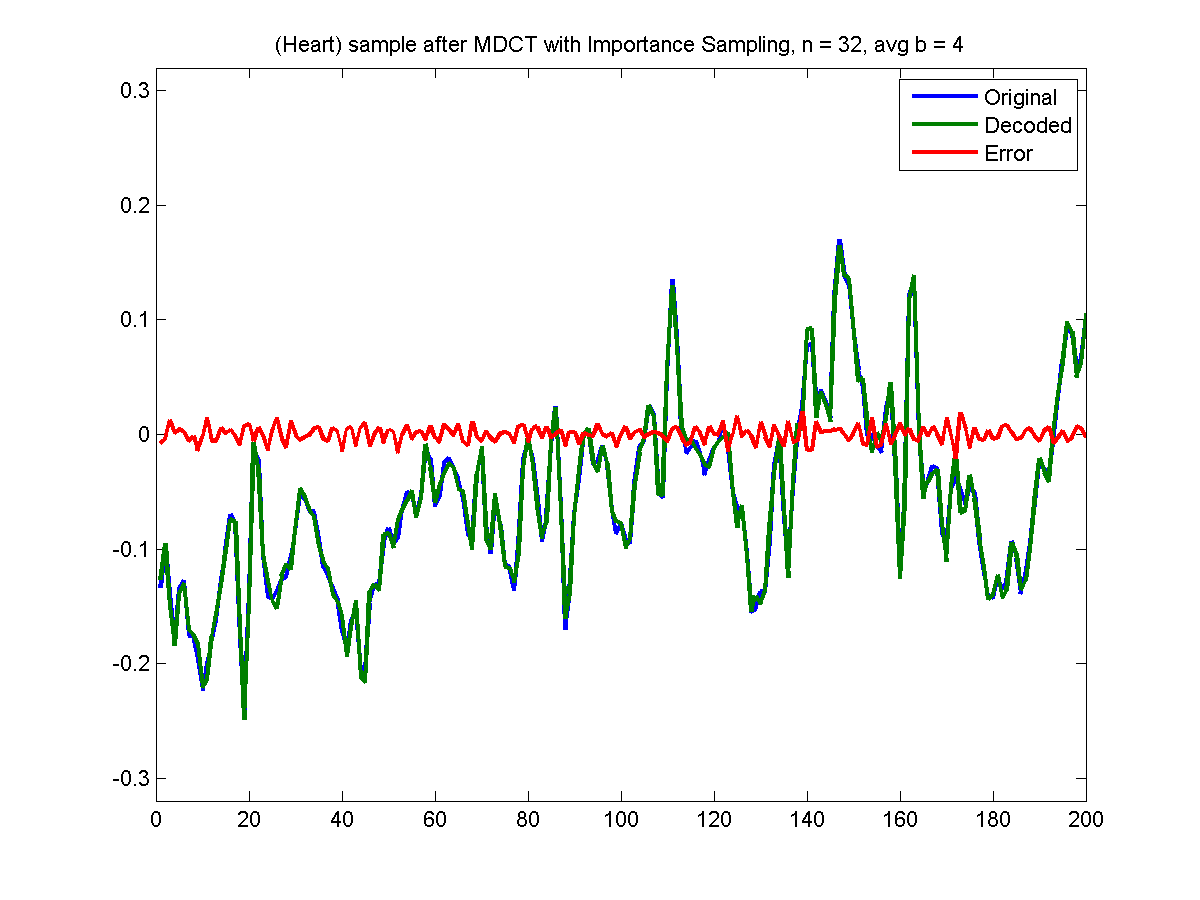| Daniel Jacobson's MATH 447 Webpage | Class Page | |||||||||||||||||||
|---|---|---|---|---|---|---|---|---|---|---|---|---|---|---|---|---|---|---|---|---|
|
Home
≫
Project 5
≫
Problem 5
Project 5: Discrete Cosine Transform & Audio Compression | ||||||||||||||||||||
|
For the fifth problem, add the ability to use different levels of bit quantization for different frequencies: in essence, to change the value of \(b\) in order to provide better precision where it will be most noticeable. To do this, I used a modified version of the D'Hondt (Jefferson) method, a method for allocating seats in a proportional voting system. First the bit array is initialized to some minimum precision level - I chose 2 bits. Next, the MDCT is quickly run along the length of the audio file and the averages of all \(y_k\)s are recorded. Now, for each bit of precision that we wish to allocate (I wished to have an average 6 bits per value so this process was repeated \(4n\) times), we find \(\frac{\overline{y}_k}{(b_k+1)^4}\) for all \(k\) and add a bit of precision to the coefficient for which this value is the highest. (The original method does not raise the denominator to the fourth power - I added this to account for the vast differences in order of magnitude between coefficients). To prevent one coefficient from hogging all the precision, I set a hard cap of 8 bits.
Relevant files:
prob5codec.m,
question5a.m, and
prob5a.txt.
The importance sampling shows significant improvement over simple quantization. Comparing the results of prob2codec and prob5codec shows the decrease in RMSE:
Let's try compressing the same ♥ (Heart) sample from part 4:
b = 4, RMSE = 0.0060
Compressing with importance sampling reduces our RMSE to 0.0060 (compared with 0.0081 and 0.0070 from
the simple vs sinusoidal windowing comparison made in part 4). A small but appreciable improvement.
 Original: Decoded: Error: | ||||||||||||||||||||
| ||||||||||||||||||||



